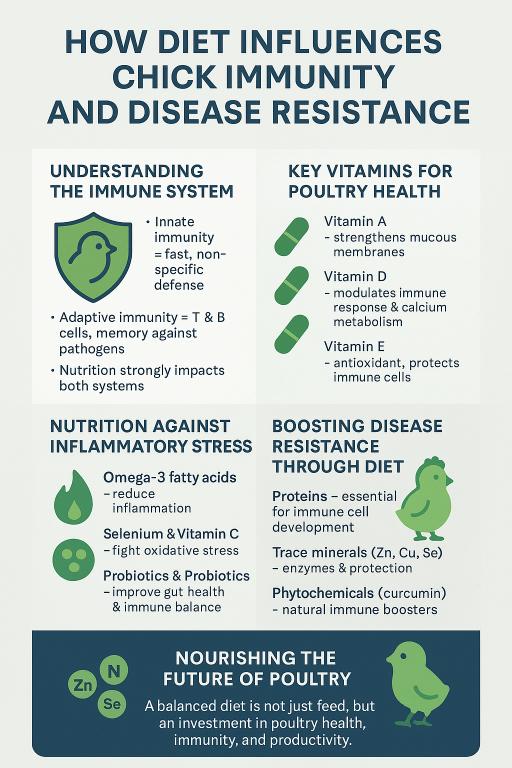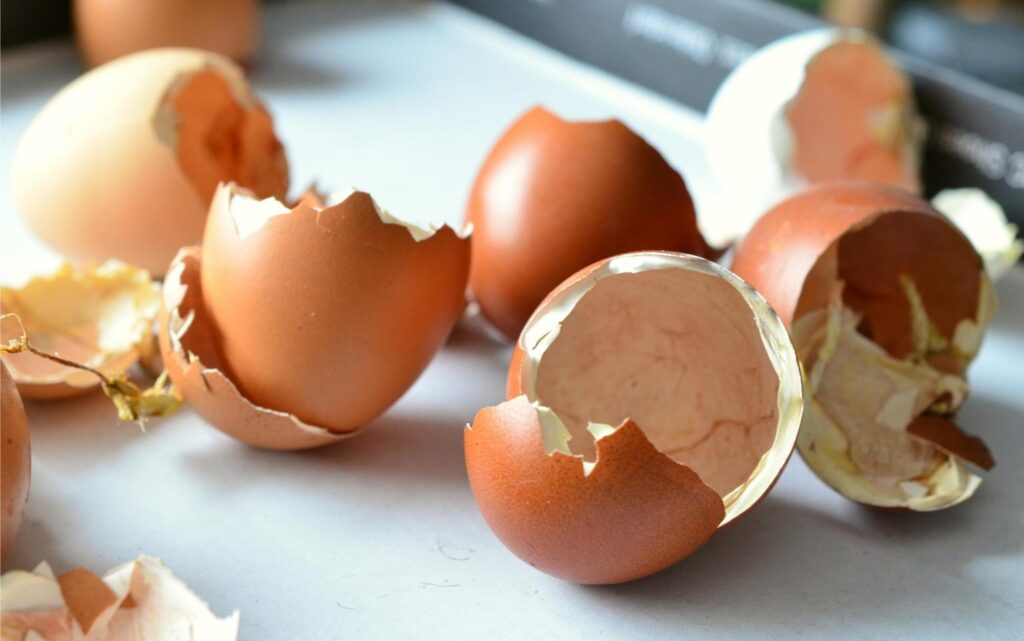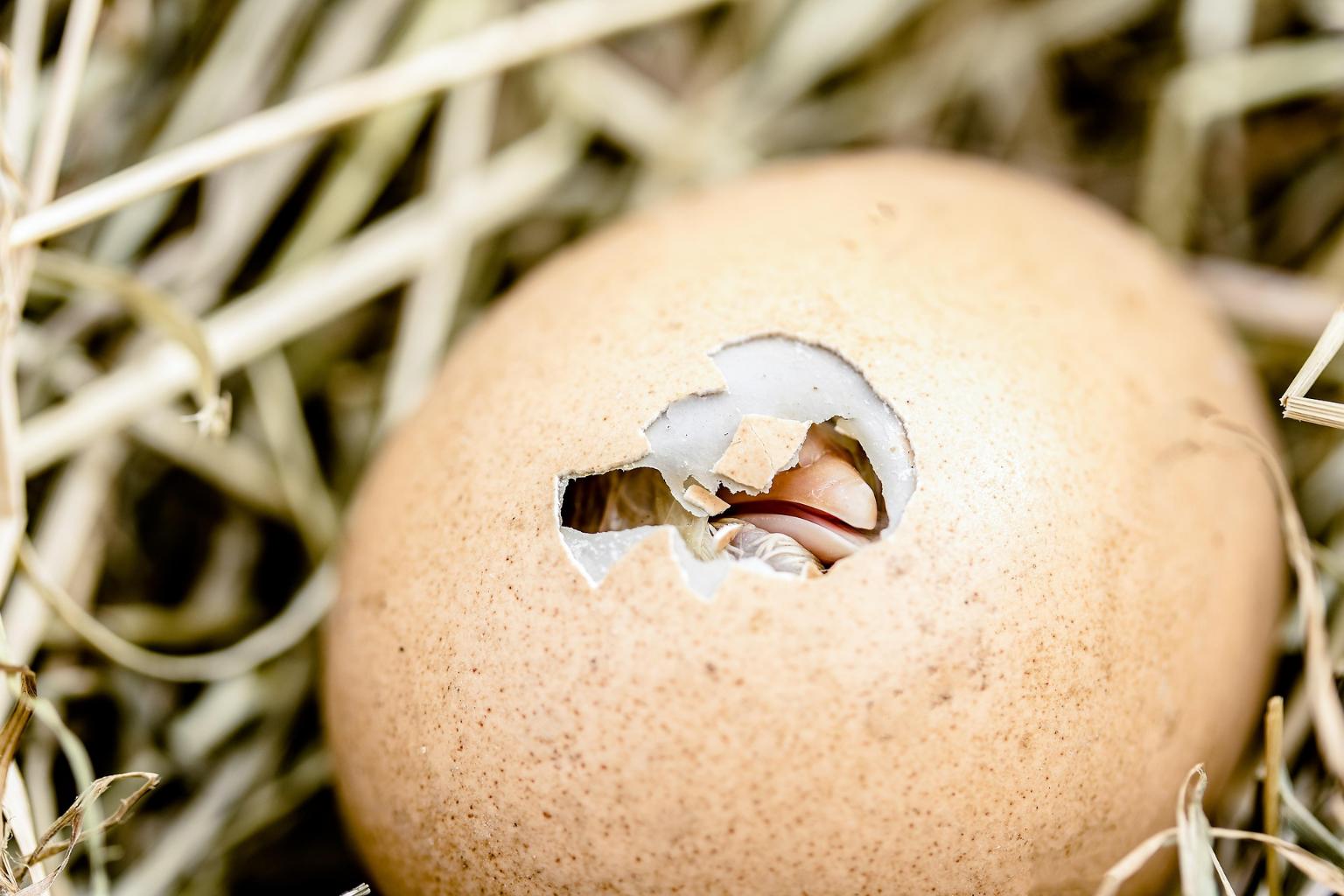In the bustling world of animal agriculture, the humble chicken emerges not merely as a source of sustenance but as a pinnacle of efficiency and productivity. Yet, beneath the feathers and clucks, lies an intricate tapestry of nutritional needs and immune responses that dictate their health and productivity.
As explained on the website https://poultry.ceva.com/, as poultry producers or nutritionists , you need to understand the hidden dynamics of how diet propels a chick’s immune system into action, fortifying it against disease and stress.
The core of this exploration is nutritio, specifically how dietary choices can significantly influence the immune system of chickens, enhance their resistance to infections, and ultimately boost animal production.
As we delve into these aspects, you’ll gain insights into the cellular machinery at play, the role of vitamins, and the overarching importance of a balanced diet. Ready to unravel this biological tapestry? Let’s embark on this enlightening journey.

Understanding the Immune System in Chickens
The immune system is a complex network of cells, tissues, and organs that work harmoniously to protect chickens from pathogens. For poultry, a robust immune response is vital not only for fighting infections but also for maintaining optimal health in a high-demand production setting. Understanding this system and how it’s influenced by nutritional factors is pivotal for anyone involved in poultry production.
Chickens, like all animals, possess innate and adaptive immunity. Innate immunity serves as the first line of defense, recognizing and responding to incoming threats quickly. This non-specific response includes physical barriers, such as skin and mucous membranes, and a variety of immune cells ready to attack invaders.
On the other hand, the adaptive immune system is more sophisticated, offering a targeted response through the activation of T and B cells, which remember specific pathogens, increasing the speed and strength of future immune responses.
Nutritional factors have a profound impact on both these immune responses. Feeding practices that focus on nutrient-rich ingredients can bolster these defenses, enabling better health and productivity.
A balanced diet, rich in essential vitamins and minerals, can support the development of strong immune cells, while deficiencies can lead to increased vulnerability to diseases. For instance, an adequate intake of vitamin E is known to enhance both the humoral and cell-mediated responses, offering a protective buffer against infectious diseases.
The Role of Vitamins in Poultry Health
Vitamins are the unsung heroes in the world of poultry nutrition. These organic compounds, though required in minute quantities, play crucial roles in numerous biological processes, including the support of the immune system. A poultry diet that is rich in vitamins can be the difference between thriving flocks and those susceptible to disease.
Vitamin A is pivotal for maintaining the integrity of mucous membranes, which serve as primary barriers against infections. A deficiency can lead to compromised epithelial tissues, therefore increasing susceptibility to pathogens. Meanwhile, vitamin D ensures proper calcium metabolism and has been found to modulate the immune response, aiding in the fight against pathogens.
The antioxidant properties of vitamin E are crucial for protecting immune cells from oxidative stress, a byproduct of metabolic processes and environmental stressors. By reducing oxidative damage, vitamin E helps maintain the functionality of immune cells, ensuring a robust immune response.
In your quest for a fortified immune system in poultry, it’s essential to ensure a consistent supply of these vitamins. Whether through commercial feeds or natural supplements, increasing the bioavailability of these nutrients can significantly enhance the immune competence of chickens, paving the way for healthier, more productive animals.
Harnessing Nutrition to Combat Inflammatory Stress
Inflammation is the body’s natural response to injury or infection, but in chickens, chronic inflammatory stress can lead to unwanted consequences. As poultry producers striving for optimal production, understanding and mitigating inflammatory responses through nutrition is key.
Inflammatory stress often arises from exposure to pathogens, environmental factors, or nutritional imbalances. When chronic, it can hinder immune function, affecting growth rates, feed efficiency, and overall health. Here, nutrition becomes a powerful tool to modulate these responses.
Omega-3 fatty acids, found abundantly in flaxseed and fish oils, have been shown to possess anti-inflammatory properties. Incorporating these into poultry diets can reduce inflammatory markers and improve the overall immune response. Furthermore, antioxidants like selenium and vitamin C can neutralize free radicals, reducing oxidative stress and inflammation.
A focus on gut health can further alleviate inflammatory stress. Prebiotics and probiotics foster a healthy gut microbiome, which is instrumental in regulating immune responses. They aid in nutrient absorption and support the production of short-chain fatty acids, which have known anti-inflammatory effects.
By harnessing the power of nutrition, you can effectively reduce stress in chickens, leading to better health outcomes and improved productivity. This proactive approach ensures that your flocks remain resilient in the face of challenges.

Boosting Disease Resistance Through Diet
Disease resistance in chickens is not just about genetics; it’s about creating an environment where their immune systems can thrive. Central to this is a diet that not only meets their basic nutritional needs but also fortifies their defenses against diseases.
In the fight against infections, proteins play a critical role. They provide the building blocks for immune cell development and function. A deficiency in protein can lead to immunosuppression, making chickens more susceptible to infections.
Therefore, ensuring an adequate protein supply, sourced from quality feed ingredients, can bolster disease resistance.
Trace minerals such as zinc, copper, and selenium are essential for maintaining immune function. They participate in enzyme synthesis, antioxidant protection, and the development of immune cells. By ensuring these nutrients are present in the right amounts, you can enhance the immune resilience of your flocks.
Incorporating phytochemicals and herbal supplements is gaining traction in modern poultry nutrition. Compounds like curcumin and garlic extract have shown promise in enhancing immune responses and protecting against pathogens. Such innovative approaches, rooted in traditional knowledge, offer a complementary strategy to conventional feeding practices.
As caretakers of your flocks, crafting a diet that includes these elements will not only increase disease resistance but also promote a thriving poultry operation, reflecting the benefits of nature and nutrition working in harmony.
Nourishing the Future of Poultry
As stewards of poultry well-being, it’s imperative to recognize that diet is not merely a fuel but a powerful ally in enhancing immunity and disease resistance. By integrating strategic nutritional elements into your feeding regimens, you lay the groundwork for healthier and more productive flocks.
From the cellular intricacies of the immune system to the beneficial roles of vitamins and nutrients, every aspect of poultry nutrition plays into the broader picture of animal health. It’s about crafting diets that not only satisfy hunger but also empower the immune machinery to fend off diseases and adapt to challenges.
In an ever-evolving world where poultry production demands are rising, nourishing the immune system through thoughtful dietary choices is not just a responsibility; it’s an investment in the future. Embrace innovation, value traditional wisdom, and witness your flocks flourish under the umbrella of an enriched diet.
In this journey of discovery and application, remember that every decision you make in the feed room echoes through the health and productivity of your flocks, creating a ripple effect that extends beyond the barn.



